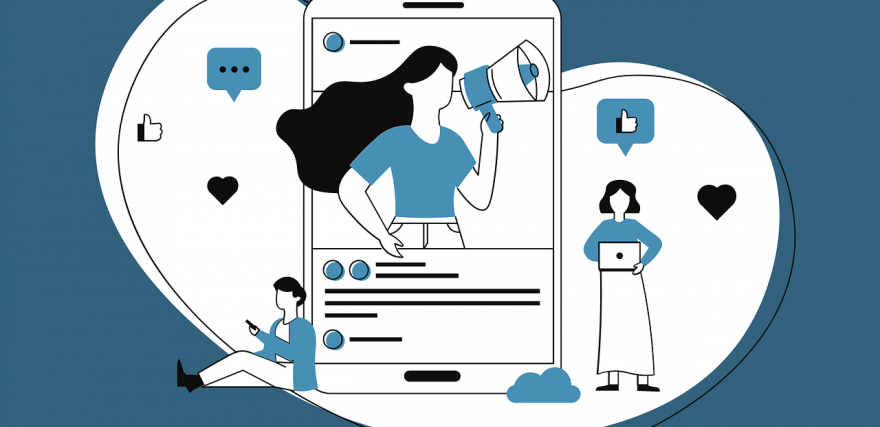Elf-Moondance / Pixabay
By Danielle Wiley
Source: www.smartbrief.com, November 2021
If you liked this article, sign up for SmartBrief’s free email newsletter on Social Business. It’s among SmartBrief’s more than 250 industry-focused newsletters.
A recent New York Times article summed it up perfectly: “Yes, Marketing is Still Sexist.”
There is an audible sigh in that headline, and for good reason: It is exhausting how badly marketing continues to fail women, with the same old sexist tropes that have been there all along.
Be sexier. Be thinner. Be a perfect mom. And, Please FTLOG be invisible if you’re over 40.
All of these messages are still being broadcast loud and clear to women by way too many advertisers.
Oh, but what about all the modern feminist marketing that urges us to be braver, bolder, more outspoken and stronger? You know, those cool ads that remind us that women are amazing and #empowered to be whatever the brand is telling us to be?
Surprise: It’s the same message! Under the guise of bolstering confidence and self-esteem, this marketing strategy relies on an age-old trick for selling to women: Tell them they’re not good enough.
Imagine instead a world where brand messaging is authentically supportive and relatable to female consumers because it’s shared by the people who truly understand their needs: other women.
Influencers offer the personal touch
It’s well past time to consider the effect of women influencers sharing brand messaging in a way that’s relevant to their own lives.
Instead of spending astronomical amounts of cash on stale spray-and-pray messaging shared via yesterday’s medium, what if brands partnered with creators who can communicate in ways that are extremely targeted and culturally relevant?
Or, instead of brands using creative agencies to deliver the same traditional messaging of female success viewed through the male lens, what if brands turned their outreach over to women who authentically represent their target audience?
If it seems like that kind of female-centric marketing might produce different results, you’re starting to see the big picture.
Benefits for brands — and responsibilities, too
When female influencers share their lived experiences and perspectives along with their product reviews and recommendations, their like-minded audiences feel seen and understood.
Simply put: Influencer marketing allows brands to engage with consumers in a more personal, genuine way.
If you’re new to the idea of influencer marketing, you might have the misconception that it’s only for young consumers, or that it’s only for specific verticals like beauty and fashion. In fact, 90% of marketers believe influencer marketing to be an effective strategy, and it’s been shown to work across a great variety of ages and interests.
Influencer marketing brings an opportunity for brands to actually empower women by handing over the promotional wheel. Female creators who stay authentic to their values, needs and interests deliver marketing that actually resonates — precisely because of that authenticity.
Women are tired of condescending, sexist ads. We’re tired of brands pretending to care about us while promoting unrealistic beauty standards.
Also, we’re 100% OVER being told we’re a #girlboss by companies who don’t walk out their values.
The truth is, today’s brands should feel a responsibility to market their products in a way that doesn’t criticize women or demand perfection.
Instead of yet another degrading commercial that misrepresents what women care about, why not let women tell each other how your product actually helps their lives?
Choosing a better world for women
Women essentially created the influencer marketing industry decades ago, starting with the so-called “mommy blogs” that fostered community and drove brand interest. While the trends and technologies have changed, the basic concept remains the same: Women know how to connect with each other.
Brands, it’s time to tap into that connection.
Female consumers don’t trust brands the way they trust their communities, friends and social networks. Not only that, large-scale messaging simply doesn’t work in an increasingly fragmented world where people are drawn to personalization and curation.
Let’s stop making ads that tell women what they should look like, or what kind of personality they should have.
Let’s just stop developing female-centric marketing that says the same thing over and over and over again in a variety of clever disguises: You’re not good enough.
Businesses can truly start making this change today with influencer marketing. Everything you need to authentically reach women without damaging them in the process is available — as long as you’re willing to change up the game.
Danielle Wiley is the founder and CEO of Sway Group, a modern agency that specializes in influencer marketing, branded content and digital advertising. With over 25 years of industry experience, Danielle is widely recognized as an industry leader in content marketing, influencer marketing and social media strategy.

